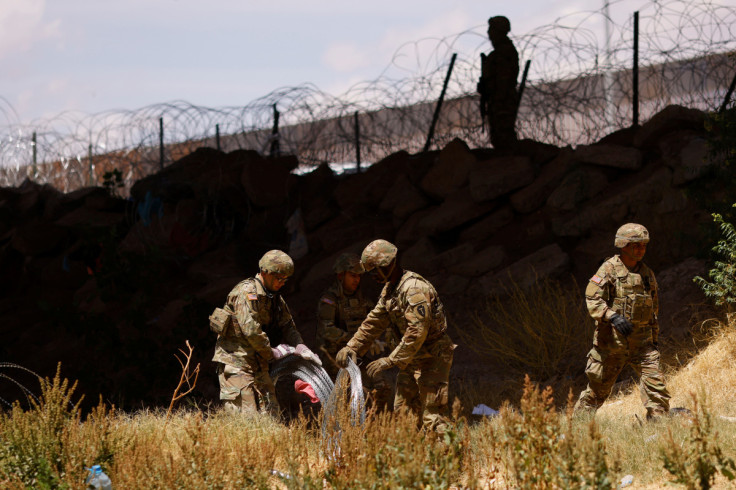
As the U.S. continues to grapple with the ever-increasing arrival of migrants at the southern border, former President Donald Trump is already crafting a set of potential measures described as "the largest domestic deportation operation in American history," The Washington Post reported on Wednesday. Trump's push to focus the campaign on immigration comes as he marches on to secure the Republican presidential nomination.
Trump, who has been a vocal proponent of stricter immigration policies since his 2016 campaign, envisions a deportation effort modeled after the Eisenhower-era program, known as Operation Wetback and infamous for its use of military tactics to round up and remove Mexican migrant workers. Despite criticisms and concerns, the Trump campaign is steadfast in its commitment to implementing mass deportations as soon as he returns to the Oval Office, should that effectively happen.
The former president's immigration proposal, spearheaded by his adviser Stephen Miller, includes plans for an unprecedented deployment of federal, state, and military resources to apprehend and deport undocumented immigrants. The campaign promises a swift restoration of previous policies and the implementation of new crackdowns to combat illegal immigration.
Experts, government officials, and former administration insiders have raised broader legal, logistical, and ethical challenges to Trump's deportation plan. The proposal, which they see as alarming and impractical, has also raised questions about the feasibility of executing such an operation and the potential impact on communities and law enforcement.
One of the key issues is the bottleneck in detention space, prompting suggestions from Trump allies, including Miller, to build mass deportation camps. Critics argue that such facilities could lead to violations of human rights and pose risks to both law enforcement and the communities involved.

Despite polls indicating that voters prioritize immigration and trust Trump over President Biden on the issue, there is internal disagreement within the former president's circles regarding the specifics of the deportation plan. While border security and deporting criminal migrants are seen as winning political issues, some advisers express concern about the potential negative repercussions of promising mass deportations of individuals who haven't been convicted of crimes, the outlet reported.
While the proposal could gain traction among his supporters, it would also face challenges in terms of personnel, detention space, and potential legal battles. With approximately 11 million undocumented immigrants in the U.S., executing mass deportations would require significant resources, including the recruitment and training of deportation officers, who currently number around 6,000 nationwide.
ICE knows about 7 million of them, many through a massive database of people eligible for deportation. About 1.3 million have already received a deportation order from a judge but haven't left the country. Even though they could be deported in an easier manner, as they have already received due process, in many cases the government doesn't know where they are.
The logistical hurdles extend to the availability of detention space, as the Biden administration currently uses approximately 38,000 beds at immigration jails and facilities. Suggestions of using military aircraft and National Guard troops for large-scale deportations face criticism for being resource-intensive and impractical.
Additionally, a proposal to sign an executive order withholding passports and government benefits from children of undocumented immigrants born in the U.S. could face legal challenges, potentially setting up legal challenges to uphold the 14th Amendment's guarantee of birthright citizenship.
Beyond domestic challenges, the proposal raises concerns about dealing with "recalcitrant countries" that limit or refuse to take back deportees. Some nations, including Venezuela and Cuba, already face U.S. sanctions, reducing Washington's leverage in compelling them to accept more deportation flights.
The outlet notes that Trump and his campaign have offered few details about how he'd implement the measures, only saying that they would "use all necessary federal, state, local and military resources."
© 2024 Latin Times. All rights reserved. Do not reproduce without permission.







